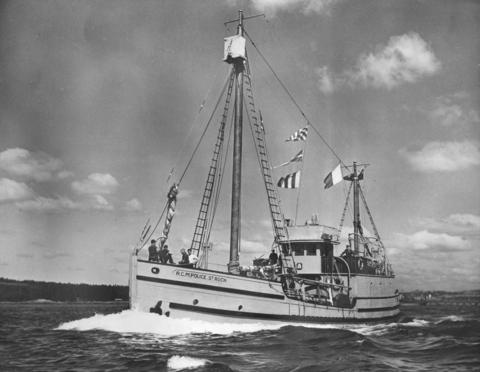It's kind of a pain to sail all the way around the world. At least, that's how Europeans felt several centuries ago. If you wanted spices from the Indies, you had to sail around Africa or all the way across the Atlantic and then all the way around South America. It was a pain.
So the madness surrounding a search for the Northwest Passage is understandable. "Wouldn't it be nice," thought Henry VII in 1497 and Charles V in 1524 and Christian IV in 1619, "if there were a shorter route to the other side of this troublesome continent? Surely someone can find a way through."
Someone didn't, at least until the early 1900s. The failure of past expeditions had to do with their big, heavy ships and their large crews (which meant many mouths to feed). Roald Amundsen set sail from Norway in 1903 with a crew of six in a shallow herring boat. Though they were iced in at King William Island for two years, they used the time to learn from the Inuit and eventually completed their journey across the waters of the continent in 1906. Amundsen and his fishing boat and his handful of men had done it! A sea passage had definitely been found, and though their light boat had been able to skim through the (sometimes) three foot deep water, it was still not a good route for commercial vessels.
 |
| The RCMP St. Roch in 1944 photo by Major J.S. Matthews (via City of Vancouver Archives) |
It wasn't until the 1940s that a big, heavy ship got through the Northwest Passage. The St. Roch is a schooner of the Royal Canadian Mounted Police, and though it took over a year to get there, they made it. They broke their own record two years later by zooming from Halifax, Nova Scotia to Vancouver, British Columbia in eighty-six days.
And on this day in history in 1950, the St. Roch arrived victorious in Halifax from a journey that not only took it across the Northwest Passage but also through the Panama canal: it became the first ship to circumnavigate North America.
Considering the treacherous ice and the probability of one's crew starving to death, I'm not sure the search for the Northwest Passage was worth it. Since it wasn't successfully traversed by water until the twentieth century anyway, those European monarchs may have been wiser to wait for the invention of air travel.
No comments:
Post a Comment